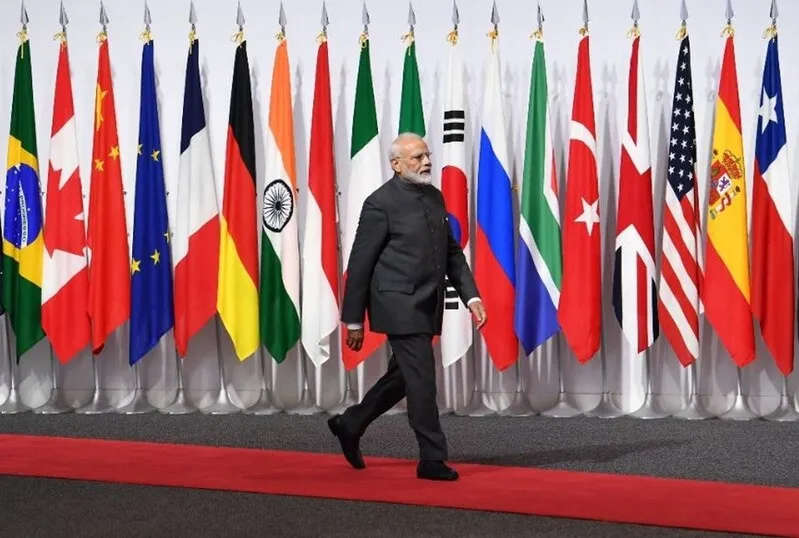India to discuss rupee-denominated trade with BRICS member Russia in a high-level delegation meeting in Moscow next week. The talks are scheduled for August 20-21, and India seeks to bolster the rupee amid Trump’s tariffs and trade wars. Prime Minister Narendra Modi’s administration is taking a series of bold steps to protect the nation’s economy from the tariffs.
BRICS member India will lead the talks with Russia, asking them to settle cross-border transactions in the rupee. New policy deals could be drafted after the meeting, where the USD takes the back seat in trade and transactions. If the deal goes through, it would be a boost in the arm for India as it would internationalize the rupee.
Also Read: 3 European Countries Aspire To Join BRICS
In addition, a senior officer told Bloomberg on the condition of anonymity that BRICS member India will discuss a free trade agreement highlighting the rupee with Eurasian Economic Union (EAEU) countries during the Russia visit. The high-profile meeting in Moscow will come after Trump imposed 50% tariffs on India for procuring Russian oil. The tariffs were also placed on Brazil, and Lula da Silva is looking to provide a joint statement.
India Seeks to Push the Rupee Forward With BRICS Member Russia

The alliance seeks to deepen ties with member nations to safeguard their economies as Trump upends the flow of trade. India is aiming to leverage the growing discontent against the USD and centralize the rupee among BRICS members. There is a high possibility that Russia could agree to use the rupee for cross-border settlements as they are reducing its USD dependency.
Also Read: BRICS Members in 2025: Full List, New Member Countries & Global Impact
India has previously made it clear that their motive is not de-dollarization, but it only wants to internationalize the rupee. The tariffs and trade wars are forcing BRICS members like India and Russia to abandon the USD for payment settlements. It could redraw the lines of cross-border transactions with new policies focused solely on local sentiments and profits.






